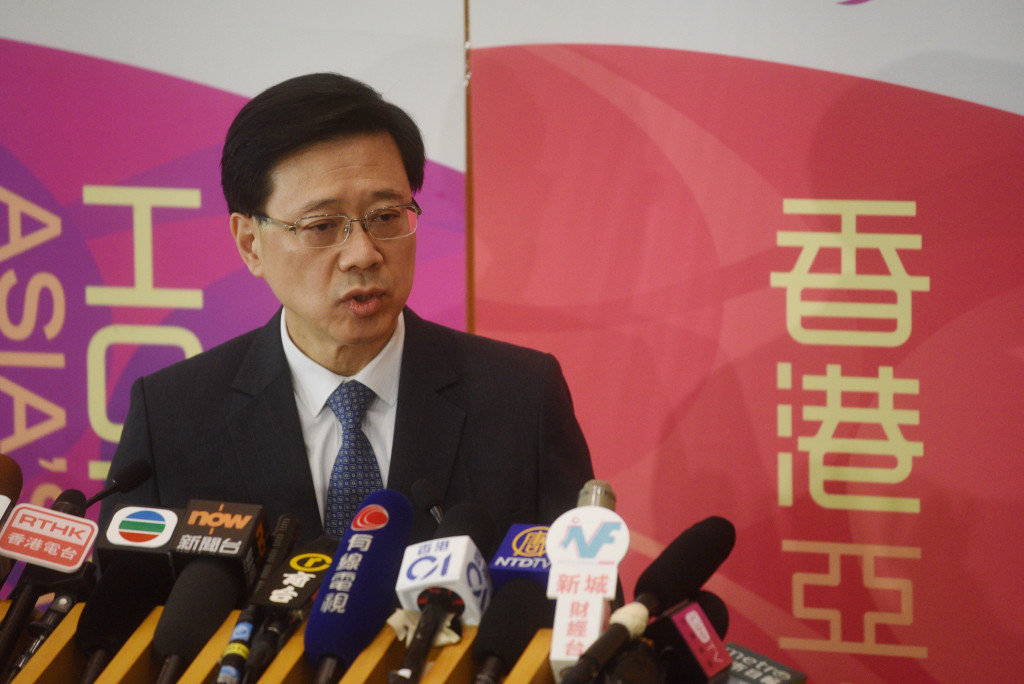The UK’s Foreign and Commonwealth Office (FCO) has said they “note with concern” the Hong Kong government’s plans to prohibit the continued operation of the pro-independence Hong Kong National Party (HKNP).
On Tuesday, Andy Chan – convener of HKNP – was given 21 days to respond to a set of 700 pages of documents delivered to him by the police. They listed his past speeches and activities. Secretary for Security John Lee will then decide whether to ban the group on the grounds of national security and public safety. If HKNP is banned, Chan could then appeal to the chief executive and the executive council.
The FCO said in a statement issued on Wednesday that Hong Kong people’s rights to stand for election, of free speech and of freedom of association were enshrined in the Basic Law – Hong Kong’s de facto constitution – and the Hong Kong Bill of Rights.

“The UK does not support Hong Kong independence, but Hong Kong’s high degree of autonomy, and its rights and freedoms, are central to its way of life, and it is important they are fully respected,” it said.
If HKNP is banned after Lee’s decision is made, anyone who is a member of an unlawful society, attends one of their meetings or gives them money, could be subjected to a HK$50,000 fine and two years behind bars.
Chan declined to reveal how many party members HKNP has, but said the police documents estimated there were between ten and 100 members. Chan said the police papers only listed two people in the group – himself and the party’s spokesperson Jason Chow.
Johannesburg Principles
Democratic Party lawmaker James To, deputy chair of the legislature’s panel on security, said that he believed HKNP did not have many members and did not have many external activities.
“If there is only one member, even [pro-Beijing heavyweight] Maria Tam said the government cannot do anything,” he told a Commercial Radio programme on Wednesday. “Otherwise, it would be a limit to individual freedom.”
To made reference to the Johannesburg Principles which state that groups should be only banned if the government can prove that the groups will cause imminent violence.

Pro-Beijing lawmaker Paul Tse, also of the panel on security, said on the radio show that HKNP indeed advocated for independence, had more than one member, and that Chan went to Taiwan for events many times.
He said he believed the government would not abuse the Societies Ordinance in the future, when asked by the hosts if more groups will be banned using the law.
“The line is clear, there are adequate legal grounds, and it can be widely accepted politically,” Tse said. He urged the public not to over-interpret the incident.
UK watchdog Hong Kong Watch said on Twitter that the development “sets a dangerous precedent and could have major implications for freedom of expression.”
